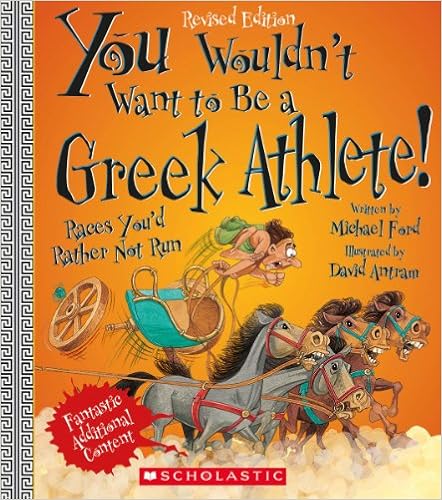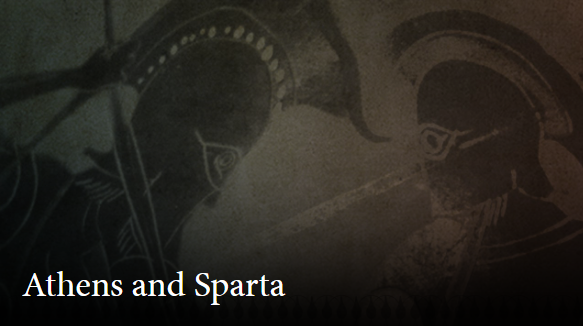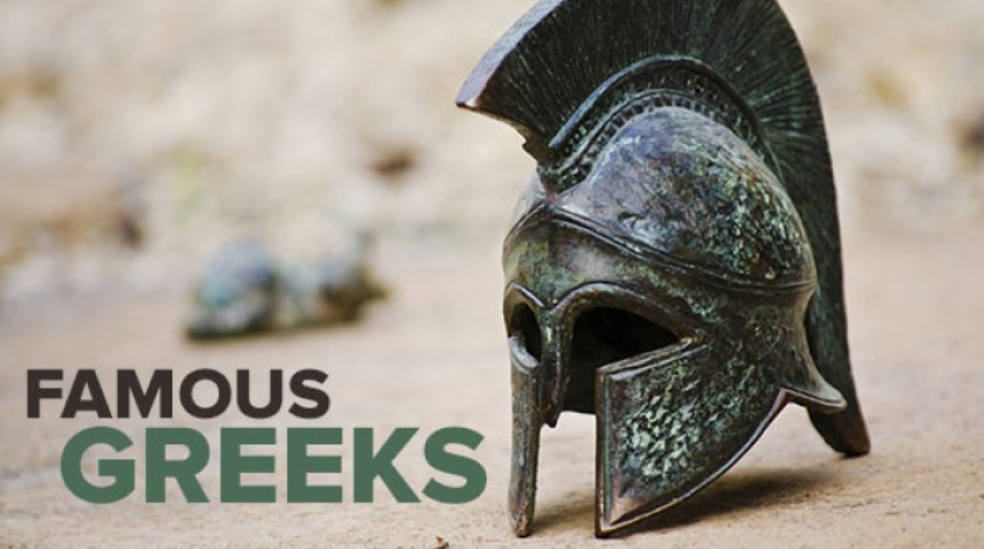***UNDER CONSTRUCTION***
So much of the origins of Western Civilization lie in ancient Greece, including politics, philosophy, history, and science. The Ancient Greeks created the first democracy, which was of great interest to the American founding fathers as they created our country. For generations, education started with the Greeks and well-educated students learned to read and speak Greek. The writings of the Founders are full of references to ancient Greece, to the extent that it is often difficult to grasp their meaning without familiarity with Ancient Greece.
Themes Relevant to America (sourced from Greeks & Romans Bearing Gifts by Carl J. Richard.)
- The Persian Wars and the superiority of republican government: The founding fathers studied the story of the Persian wars – the near miraculous victory of the tiny Greek republics over the seemingly invincible Persian Empire. From this the founders learned that it was possible for a collection of small republics to defeat a centralized monarchical empire in a war for survival. This was a crucial lesson because the founders faced such a power in the Revolutionary War. Just as few contemporary observers had expected the Greek republics to defeat the Persian Empire – the greatest power on earth in the early 5th century BC – few observers of the founders’ day expected the weak and undisciplined collection of American republics to defeat Great Britain, the greatest power on earth in the 18th century.
- Athens and the perils of excessive democracy: The founding fathers learned the story of the growth of democracy in Athens and its consequences, which influenced their decision to create a republic: a system of mixed government in which the masses would have a share of government power that would be counterbalanced by a powerful executive and by a strong Senate rather than a simple democracy. The founders considered the story of Athens a cautionary tale against an excess of democracy in a Republic. Many believed that the Athenians had condemned their own society to destruction by consolidating all power in the hands of the masses and failing to balance that power with a strong executive and a powerful Senate. They believe that through the establishment of a mixed government and through such modern innovations as representation and the separation of legislative, executive and judicial powers, the United States could escape “the tumultuous commotions , like the raging waves of the sea, which always agitated the ecclesia at Athens. “ The founders especially noted how the citizens in the Athenian democracy fell under the sway of charismatic speakers such as Cleon and Alcibiades who led them to ruin in the Peloponnesian War.
- The fall of Greece and the need for a strong central government: The founding fathers were familiar with the story of the conquest of the Greek republics by Macedon and Rome. The ravages of the Peloponnesian War upon Athens and Sparta, and the fall of these republics to the centralized powers of Macedon and Rome was instructive to the founding fathers in their quest to build a stronger union following the Revolutionary War. From this they learned the importance of a strong central government to bind the American states together in a powerful union. Without such a union, there was a real danger that the United States would suffer the same fate as the Greeks, who lost their Liberty because of constant internal strife that weakened them and left them vulnerable to foreign invaders. The founders learned that a certain degree of centralized power was necessary even to a confederacy of republics, which informed that transition from the Articles of Confederation to the U.S. Constitution.
Foundational Historical Knowledge:
- Ancient Sparta
- Ancient Athens
- The Persian Wars
- The Peloponnesian Wars
- Alexander the Great & his empire
Cultural Literacy:
- Greek Gods & Myths
- The Trojan War
- Homer: The Iliad and The Odyssey
- Greek Tragedies
- The First Philosophers: Socrates, Plato, Aristotle
Sequencing the Material:
Following is how I cover Ancient Greece over a ten-week period:
- Weeks 1-3: The Mythological Past and the Homeric Age: I briefly cover the early civilizations of Crete and Mycenea, and then explore the Greek gods and hero myths before diving into the centerpiece of this era – the Trojan War. I found a good children’s version of the Iliad and the Odyssey, which are important cultural touchstones for Western Civilization.
- Weeks 4-6: Origins and development of Sparta and Athens, the two most prominent city-states of ancient Greece. Compare their societies and governments: Sparta – regimented and militaristic, Athens – democratic and brilliant, but also chaotic.
- Weeks 7: Persian War: the Greeks come together. Greek victories at Marathon, Salamis and Plateau changed the course of history – a Greek defeat likely would have meant that Classical Athens never happens.
- Weeks 8-9: Peloponnesian War: the Greeks come apart. What caused this mass exercise in civilizational suicide? How does an established power come to terms with a rising power? What are the dangers of unrestrained democracy? The Peloponnesian War has been studied for over two thousand years, and its lessons are still relevant today.
- Week 10: Alexander the Great: The Macedonians take over, the Achaean League, and the end of Independent Greece.
Study Questions:
- Was Ancient Greece one united country?: No, Greece had a common language, religion, and many common customs, but Greece was made up of city states which made their own laws and fought with each other.
- How was the Spartan and Athenian government created?: When Athens and Sparta were just getting started in both cities, things weren’t going well and everyone was arguing. In both cities a man came along who set up a new government that worked better. In Athens the mans name was named Solon and in Sparta the man was named Lycurgus.
- What type of governments did Athens and Sparta have?: Athens and Sparta had balanced Constitutions, With several groups of people sharing power to prevent one person or group of people from having too much power.
- What was ancient Sparta like?: Trained to be warriors. Went to live in military school at age seven. Wore plain clothes, ate plain food. Closed society.
- What was ancient Athens like?: Valued learning, art, business, open society.
- What happened to the Athenian government?: In Athens, the balanced constitution changed to a direct democracy where everyone was in charge of making decisions. This group of people made bad decisions and lost the Peloponnesian war.
- What is philosophy?: “Philo-” means love, and “-sophia” means wisdom, so the word “philosophy” really means “the love of wisdom.” Philosophy was the way Greeks attempted to make sense out of the world, in a non-religious way. This means that rather than using myths and stories to understand the world, they would use their intelligence and reasoning skills. Basically, philosophy is thinking about the world and making sense out of it. For example, early Greeks began asking the question, “What exists?” They questioned the world around them and tried to make sense out of what they saw. The three most famous philosophers were Socrates, Plato and Aristotle.
- Who fought the Trojan War?: A Trojan prince kidnapped the wife of a Spartan King, so the Greeks joined forces and sailed to Troy to get her back.
- How did the Trojan War end?: The Greeks built a big wooden horse and hid inside. The Trojans thought it was a gift for the goddess Athena and brought it inside the gates of the city. That night, the Greek soldiers climbed out of the Wooden horse and opened the gates to allow the rest of the Greek army in.
- Why did the Persian War start?: The Persian King Darius conquered the Greek cities of Ionia (Asia Minor). When some of these Greek cities revolted, Athens came to their aid, burning the city of Sardis. The Athenians and Greeks were defeated, but Darius was so angry that he sent an Army to conquer all of Greece.
- What happened in the Persian War?: In 490, the Persian army landed at Marathon. The Spartan army was late because they had to finish a religious festival to the god Apollo, but the Athenian army defeated the Persians at the battle of Marathon and chased the Persians back to their ships. The Persians sailed home. King Darius then died, but his son Xerxes came back to try again ten years later, in 480 BC. Xerxes lead a huge army and Navy back to Greece. The Spartan king Leonidas led 300 Spartan hoplites and several thousand Greek allied troops to hold the pass at Thermopylae against Xerxes’s army. When the Persian army negotiated a hidden mountain track around the pass, Leonidas and his 300 hoplites defended the pass to the last man. The Persians then marched down and burned Athens. The Athenians had been convinced by Themistocles to build a big navy, which defeated the Persian Navy at the battle of Salamis in 480 BC. Xerxes then sailed home, but left his army in Greece to keep fighting under general Mardonius. The Greeks, led by the Spartan regent Pausanius defeated the Persian army at the battle of Plataea in 479 BC.
- Why did the Greeks win the war?: The great city states united and worked together. The Greeks made better use of the terrain. The Greek hoplites had heavy armor and shields. The Greek soldiers were free citizens fighting for their country.
- Why did the Peloponnesian War start?: Athens and Sparta each tried to become more powerful, formed alliances. Each were afraid that the other would overpower the other.
- Why was Greece conquered?: Athens and Sparta were exhausted after the Peloponnesian War, and as disunited as ever. Through diplomacy and War, King Phillip of Macedonia conquered the Greek City States one by one until all were conquered. Philips son, Alexander the Great, conquered Persia as well, but then died at age 32. His Generals divided the empire up amongst themselves and started fighting each other, until the Romans conquered them.
Activities:
Reenact the Athenian Democracy: The Athenian government was a direct democracy, where all laws could be approved or vetoed by citizens. The ruling council was known as the Boule, and all of their decisions could be voted upon by the assembly of citizens, known as the Ecclesia.
To complete this activity, you will need a stone (or stool) for your kids to stand on (the Pnyx), a ballot box, and a collection of black and white pebbles (or similar).
First, you need to create the ruling council, called the Boule. This was a group of 500 citizens chosen to serve for a year using a lottery. Choose a couple members of you family to become members of the Boule. The members of our Boule have to decide on three new laws for improving Athens.
The rest of your family make up the citizens’ assembly, known as the Ecclesia. Athenian citizens would stand on a stone called ‘the Pnyx’ to make their speeches. First, a member of the Boule stands on the Pnyx to read out the proposed law. Then, members of the Ecclesia stand on the Pnyx to give arguments for and against. Voting in the Ecclesia often functioned by placing a white pebble in a ballot box for ‘yes’, and a black pebble for ‘no’. This can be acted out at home using anything you have on hand, such as checkers or beans to act as pebbles.
The proposed laws can be anything your kids can think up. Some examples could be:
- ‘We are desperate to beat Sparta at the next Olympic games. Everyone has to do five hours of compulsory sports practice a week.’
- ‘People need to spend more time worshipping our goddess Athena, so everyone has to go to the temple and pray four times a day.’
- ‘To celebrate our recent victory in war against the Spartans, well will have a four day feast, with free wine and food for everybody.’
*Bonus: If you have more adults than kids participating, you can give your kids an experience of the dangers of unrestrained democracy like they had in Athens. Have one of the adults propose a law such as “everyone under ten years old has to go to bed right now,” or “every kid has to give an adult their favorite toy.” Use your superior numbers to approve this law, then have a discussion with your children about majority tyranny and the importance of protections for minorities – just because the majority voted for something doesn’t make it right. This is why America has a written Constitution with checks and balances, and a Bill of Rights.
Children’s Books:
You wouldn’t Want to be a Greek Athlete! by Michael Ford
Description: 
Target Age:
- Entertainment Value
- Historical Value:
- Virtues Promoted:
- Mature Content:
You Wouldn’t Want to Be a Slave in Ancient Greece! by Fiona MacDonald 
Description:
Target Age:
- Entertainment Value
- Historical Value:
- Virtues Promoted:
- Mature Content:
The Trojan Horse: How the Greeks Won the War by Emily Little
Description:
Target Age:
- Entertainment Value
- Historical Value:
- Virtues Promoted:
- Mature Content:
Description:
Target Age:
- Entertainment Value
- Historical Value:
- Virtues Promoted:
- Mature Content:
Groovy Greeks (Horrible Histories) by Terry Deary
Description:
Target Age:
- Entertainment Value
- Historical Value:
- Virtues Promoted:
- Mature Content:
The Iliad/The Odyssey Boxed Set by Gillian Cross
Description:
Target Age:
- Entertainment Value
- Historical Value:
- Virtues Promoted:
- Mature Content:
Spartans (Torque Books: History’s Greatest Warriors) by Paul Dinezo
Description:
Target Age:
- Entertainment Value
- Historical Value:
- Virtues Promoted:
- Mature Content:
Goddess Power by Yung In Chae
Description:
Target Age:
- Entertainment Value
- Historical Value:
- Virtues Promoted:
- Mature Content:
A Child’s Introduction to Greek Mythology by Heather Alexander 
Description:
Target Age:
- Entertainment Value
- Historical Value:
- Virtues Promoted:
- Mature Content:
Ancient Greece for Kids Through the Lives of its Philosophers, Lawmakers, and Heroes by Catherine Fet
Description:
Target Age:
- Entertainment Value
- Historical Value:
- Virtues Promoted:
- Mature Content:
The 300 Spartans staring Richard Egan and directed by Rudolph Mate
While containing the usual Hollywood embellishments, the movie contains a remarkable number of historical elements from the original sources.
Reference Materials:
Hillsdale College Online Course: Athens and Sparta: An extremely well done online lecture series covering Classical Athens and Sparta from the beginning of the Persian War to the end of the Peloponnesian War.
series covering Classical Athens and Sparta from the beginning of the Persian War to the end of the Peloponnesian War.
Greeks & Romans Bearing Gifts: How the Ancients Inspired the Founding Fathers by Carl J. Richardson: Describes the lessons the Founding Fathers took from their understanding of the  history of Ancient Greece and Ancient Rome, and how those lessons influenced their decisions as they created America.
history of Ancient Greece and Ancient Rome, and how those lessons influenced their decisions as they created America.

The Great Courses: Famous Greeks: This is intended to be a series of college lectures, but the professor is so engaging that my seven year old son was interested. The price tag is steep, but you can either wait for it to go on sale, or do what I did and buy the audio version through Audible.com for $13.
.

“Famous Men of Greece” by Memoria Press: includes biographies of the most important historical figures of Ancient Greece, written for an elementary/middle school audience.
.
The Book of the Ancient Greeks from Memoria Press: Covers the history of Ancient Greece from the first settlements on Crete to the end of Alexander’s Hellenistic empire.

